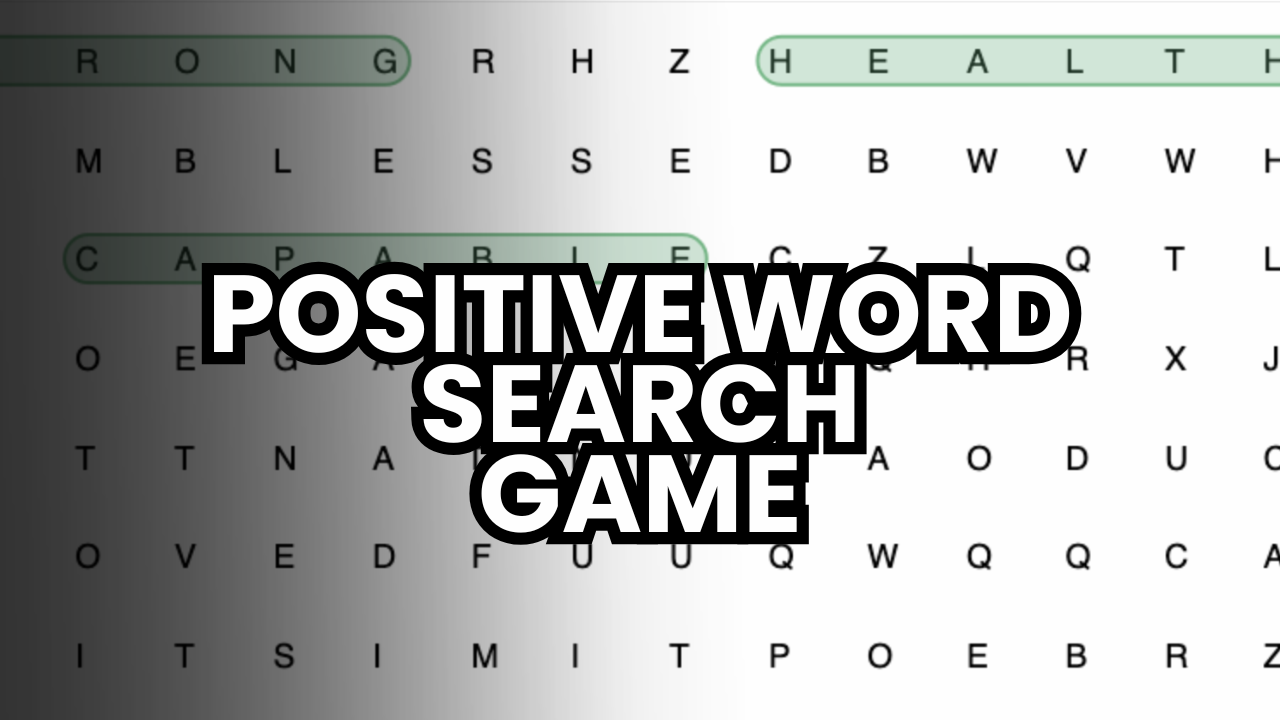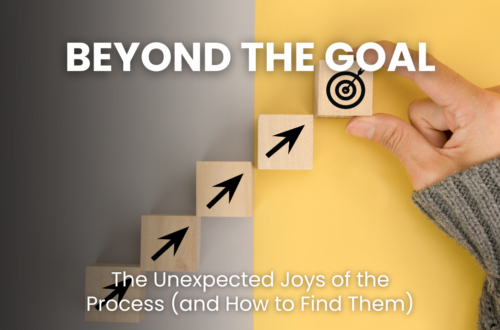Introduction: The Allure of Grand Gestures vs. The Quiet Power of Small Bets
We live in a world that celebrates the monumental. We are captivated by stories of overnight success, heroic leaps of faith, and earth-shattering innovations that seem to materialize from thin air. The narrative of the “big break” or the “bold, game-changing move” is deeply embedded in our collective consciousness. This often leads us to believe that achieving our own ambitious dreams requires a singular, grand gesture – a massive investment, a radical career change, or an all-or-nothing commitment.
However, this fascination with the dramatic often overshadows a far more reliable, sustainable, and powerful pathway to monumental change: the power of small bets.
What if the secret to achieving your biggest dreams – whether it’s launching a thriving business, mastering a complex skill, writing a book, transforming your health, or even redefining your life’s purpose – isn’t about one giant leap, but rather a consistent series of tiny, manageable, and often imperceptible steps? This blog post will delve deep into the transformative philosophy of “small bets,” exploring how breaking down overwhelming goals into actionable micro-actions can lead to consistent progress, reduce fear, foster resilience, and ultimately, culminate in monumental, life-altering change. We will dissect the psychology behind this approach, provide actionable strategies for implementing it in your own life, and uncover why placing frequent, tiny wagers on your future is the most potent strategy for success in an uncertain world.

The Problem with Big Dreams (and Big Plans): Why We Get Stuck
Before we fully embrace the elegance of small bets, it’s crucial to understand why our traditional approach to big dreams often falls short, leading to paralysis, procrastination, and ultimately, disappointment.
The Intimidation Factor: Overwhelm and Analysis Paralysis
- The Sheer Scale: A big dream, by its very nature, can feel overwhelmingly large. The gap between your current reality and your desired future seems immense, leading to a sense of “where do I even start?” This cognitive overload can trigger analysis paralysis, where you get stuck in endless planning, researching, and strategizing without taking any action.
- Fear of Failure (and Success): The higher the stakes of a “big bet,” the greater the fear of failure. The thought of pouring all your resources, time, and energy into one grand attempt and having it fall apart can be crippling. Paradoxically, the fear of success can also be present – the fear of the responsibilities and changes that a monumental achievement might bring.
- Perfectionism’s Grip: As we discussed in a previous post, the pursuit of perfection often intertwines with big dreams. The belief that every aspect of the grand plan must be flawlessly conceived and executed before starting can lead to endless tweaking and ultimately, inaction.
- Resource Exhaustion (Real or Perceived): Big plans often imply big resource commitments – significant financial investment, massive time allocation, or a complete overhaul of your current life. The perceived lack of these resources can become an insurmountable barrier.
The Illusion of Control: Predicting the Future
- Linear Thinking in a Non-Linear World: We often plan big dreams as if life is a straight line from A to B. We create elaborate Gantt charts and detailed timelines, assuming that every step will unfold as predicted. However, reality is messy, unpredictable, and non-linear. Unexpected obstacles, new opportunities, and evolving circumstances frequently derail rigid grand plans.
- Over-Planning vs. Learning by Doing: Extensive planning can create a false sense of security, delaying the crucial stage of “doing.” Real learning and valuable insights often emerge only when you begin to interact with the real world, gather feedback, and adapt.
- The “Sunk Cost Fallacy”: When we invest heavily (time, money, emotion) in a big, meticulously planned venture, we become vulnerable to the sunk cost fallacy. We might continue down a path that is clearly failing simply because we’ve already committed so much, rather than admitting a mistake and pivoting.
The Lack of Feedback and Iteration
- Delayed Validation: With big plans, feedback often comes too late. You might spend months or even years working on a product or project, only to discover upon launch that it doesn’t meet market needs or resonate with your audience. This makes course correction incredibly difficult and costly.
- Limited Learning Opportunities: If you’re only making one or two “big bets,” your opportunities for learning and iterating are scarce. Mistakes become catastrophic, rather than valuable lessons.
- Demoralization: The long lead time to seeing any results from a grand plan can be deeply demoralizing. Without consistent wins or feedback, it’s easy to lose motivation and give up.
Understanding these pitfalls is essential. It’s not that big dreams are inherently flawed, but rather our traditional approaches to pursuing them often leave us vulnerable to inaction and disappointment. This is where the profound simplicity and power of “small bets” come into play.
What Are “Small Bets”? The Philosophy of Incremental Progress
The concept of “small bets” is an antidote to the paralysis of grand schemes. It’s a strategic philosophy that acknowledges the unpredictable nature of the world and harnesses the power of consistent, low-risk experimentation to achieve ambitious goals.
Defining “Small Bets”: Micro-Actions with Macro Impact
“Small bets” are not about reducing your ambition or settling for mediocrity. Instead, they are:
- Tiny, Manageable Actions: They are steps so small and non-intimidating that you can’t not take them. They reduce the mental friction associated with starting.
- Low-Risk Experiments: Each “bet” involves a minimal investment of time, money, or effort. This significantly reduces the fear of failure, making you more willing to experiment and try new things.
- Designed for Rapid Feedback: The core purpose of a small bet is to get quick, actionable feedback from the real world. It’s about learning and iterating, not about perfect execution.
- Iterative and Adaptive: Small bets are part of a continuous cycle of “do-learn-adapt.” You take a small step, observe the results, learn from them, and then adjust your next small bet.
- Focused on Progress Over Perfection: Like the “good enough” philosophy, small bets prioritize movement and learning over an elusive ideal. Done is better than perfect, especially when “done” means you’ve gathered new information.
- Compounding in Effect: While each bet may seem insignificant on its own, their cumulative effect over time can lead to exponential, monumental change. It’s the power of consistent, tiny actions adding up.
Think of it like this: instead of trying to hit a home run on your first swing, small bets encourage you to get on base with a single, then steal second, then third, and eventually score. Each small action builds momentum and creates new opportunities.
Key Principles of the “Small Bets” Philosophy
- Start Small, Start Now: The emphasis is on immediate action. Don’t wait for perfect conditions or all the resources. Just begin with the smallest possible step.
- Experiment Relentlessly: View every action as an experiment. Some will “fail” (meaning they won’t yield the desired result), but all will provide valuable data.
- Prioritize Learning Over Winning: The primary goal of a small bet isn’t necessarily immediate success, but rapid learning. What did you discover? What assumptions were wrong?
- Embrace Failure as Feedback: Reframe “failure” not as a personal indictment, but as essential information that guides your next move. It’s a signal to pivot, not to quit.
- Be Agile and Adaptive: Don’t cling to rigid plans. Be prepared to change course, adjust your strategy, and even redefine your ultimate goal based on the feedback you receive.
- Focus on Consistency: The power of small bets comes from their regularity. A small action taken daily is far more effective than a large action taken once a year.
- Leverage Compounding Returns: Recognize that small improvements, small learnings, and small gains accumulate over time to create significant impact.
Small Bets vs. Grand Plans: A Fundamental Shift
| Feature | Grand Plans | Small Bets |
|---|---|---|
| Approach | Top-down, rigid, predictive | Bottom-up, flexible, experimental |
| Risk | High, all-or-nothing | Low, distributed across many experiments |
| Learning | Delayed, large scale | Rapid, continuous, iterative |
| Feedback | Infrequent, comes late | Frequent, immediate, actionable |
| Fear Level | High, can lead to paralysis | Low, encourages action |
| Resource Use | Large initial investment | Minimal initial investment, incremental |
| Adaptability | Low, resistant to change | High, actively seeks pivots |
| Mental State | Overwhelmed, pressured | Curious, experimental, resilient |
| Outcome | All-or-nothing, high chance of stagnation | Consistent progress, emergent opportunities, momentum |
By understanding this fundamental shift, you can begin to harness the quiet but immense power of small bets to transform your approach to any ambitious goal.
The Science Behind Small Bets: Why Tiny Steps Are So Effective
The effectiveness of small bets isn’t just anecdotal; it’s rooted in powerful psychological principles and neurological processes that govern human behavior, motivation, and learning.
1. Reducing the Activation Energy (Friction)
- The Physics Analogy: Think of “activation energy” in chemistry – the minimum energy required for a chemical reaction to occur. In human behavior, it’s the mental and physical effort required to start a task. Big tasks have high activation energy.
- Lowering the Barrier: Small bets drastically reduce this activation energy. When the first step is ridiculously small, the mental friction to begin is almost non-existent. “Just one push-up,” “write one sentence,” “send one email” – these are easy to start, bypassing procrastination.
- The “Slippery Slope” of Progress: Once you start, even with a tiny action, you build momentum. The hardest part is often just beginning. Small bets get you over that hump, making the next step feel easier.
2. Building Momentum and Positive Feedback Loops
- The Power of Small Wins: Each completed small bet is a “small win.” Our brains are wired to respond to positive reinforcement. These small wins trigger the release of dopamine, a neurotransmitter associated with pleasure, motivation, and reward.
- Dopamine-Driven Habits: This dopamine rush creates a positive feedback loop. We feel good, which makes us more likely to repeat the action, strengthening the habit of consistent progress. This is how small bets build unstoppable momentum.
- Self-Efficacy: Every successful small bet increases your belief in your own ability to succeed – known as “self-efficacy.” This growing confidence makes you more willing to tackle slightly larger challenges.
3. Combating the Amygdala’s Fear Response
- The Brain’s Alarm System: The amygdala is the part of your brain responsible for processing fear. When faced with a large, unknown, or high-stakes task, the amygdala can trigger a “fight-or-flight” response, leading to paralysis and avoidance.
- Minimizing Threat: Small bets are inherently less threatening. They involve minimal risk and resource commitment, which signals to the amygdala that there’s no immediate danger. This allows the prefrontal cortex (responsible for planning and rational thought) to engage more effectively.
- Exposure Therapy for Goals: In a way, small bets act like exposure therapy. By taking tiny, safe steps, you gradually desensitize yourself to the fear associated with your big goal, making larger steps feel less daunting over time.
4. Enhancing Learning and Adaptability (Iterative Learning)
- Rapid Experimentation Cycle: The small bet philosophy is a continuous cycle of “hypothesize, experiment, observe, learn, adapt.” This rapid iteration allows for faster learning than grand plans.
- Valuable Data Points: Each small bet provides real-world data. Did it work? Why or why not? What was the actual impact? This data is invaluable for course correction.
- Emergent Strategy: Instead of relying on a fixed, pre-determined plan, small bets allow for an “emergent strategy.” Your path unfolds and adapts based on what you learn along the way, leading to more effective and relevant solutions. This is particularly crucial in complex, uncertain environments.
5. Reducing Cognitive Load
- Focus on the Next Step: When a goal is broken down into small bets, you only need to focus on the immediate, tiny action. This reduces cognitive load and prevents overwhelm.
- Clarity and Simplicity: The simplicity of a small bet (“do X for Y minutes/dollars”) makes it easier to understand and execute, reducing mental fatigue.
By leveraging these fundamental psychological and neurological principles, small bets become a highly effective and sustainable strategy for turning ambitious dreams into tangible realities. They are designed to work with your brain, not against its natural inclinations.
Actionable Strategies: How to Implement Small Bets in Your Life
The beauty of the small bets philosophy lies in its practical applicability to virtually any area of life. Here’s how to break down your big dreams into manageable, impactful micro-actions.
1. Define Your Big Dream (and Your “Why”)
Before you start placing small bets, you need a clear North Star.
- Envision the End Goal: What’s the monumental change you’re striving for? Be specific. Instead of “get healthy,” think “run a 10K,” or “maintain a healthy weight for 6 months.”
- Identify Your “Why”: What’s the deeper motivation behind this dream? Why does it matter to you? Your “why” will be your fuel when motivation wanes.
- Accept It’s a Vision, Not a Rigid Plan: Hold your big dream lightly. It’s a direction, not a detailed blueprint. It will evolve as you learn.
2. Break It Down: The “Smallest Possible Step” Method
This is the core of small bets.
- The “Elephant” Analogy: How do you eat an elephant? One bite at a time. Apply this to your big dream.
- Brainstorm “Micro-Actions”: List every single, tiny step you can think of that moves you towards your goal, no matter how insignificant.
- Example: Write a Book
- Write 1 sentence.
- Outline 1 chapter.
- Research 1 topic for 15 minutes.
- Read 1 page on writing craft.
- Open the document.
- Example: Start a Business
- Brainstorm 3 business ideas.
- Research 1 competitor for 10 minutes.
- Create a simple landing page.
- Talk to 1 potential customer.
- Register a domain name.
- Example: Write a Book
- Identify the Absolute Smallest First Step: Out of your brainstormed list, pick the single easiest, fastest, lowest-friction action you can take right now. This is your first small bet. It should be so small that you feel ridiculous not doing it. (e.g., “Open the word document” for writing, “Search for local running groups” for fitness).
3. Implement the “Timeboxing” or “Micro-Commitment” Rule
- Set Tiny Time Limits: Instead of committing to hours, commit to minutes. “I will work on X for 10 minutes.” When the timer goes off, you’re done, no matter where you are. This reduces overwhelm and creates consistent action.
- The “Two-Minute Rule” (James Clear): If a task takes less than two minutes, do it immediately. This prevents small, easy tasks from accumulating and becoming sources of procrastination.
- Micro-Budgeting: If your dream involves money, commit to tiny financial bets. “I’ll spend $5 on a relevant e-book,” or “$10 on a tool for my side hustle.”
4. Prioritize Feedback and Learning (The “Do-Learn-Adapt” Cycle)
- Build-Measure-Learn (Lean Startup Model): This iterative cycle is fundamental.
- Build (Do): Take your small bet/action.
- Measure (Observe): What happened? What were the results?
- Learn (Reflect): What did you learn from this result? What assumptions were proven/disproven? What worked/didn’t work?
- Seek Rapid Feedback: Don’t wait for perfection. Share early drafts, minimum viable products, or rough ideas with trusted individuals or a small audience.
- Embrace “Failing Forward”: Every “failed” bet is simply a data point, guiding your next move. Reframe mistakes as valuable lessons. “That didn’t work. Good to know. What can I try next?”
- Pivot, Don’t Quit: Based on your learning, be willing to pivot your approach, your strategy, or even slightly adjust your goal. Flexibility is key.
5. Leverage Consistency and Tracking
- Consistency Over Intensity: A small action taken daily is far more powerful than a large action taken once a month. The compounding effect of small bets requires regularity.
- Track Your Progress: Keep a simple log or use a habit tracker. Seeing your streak of small bets accumulating provides powerful motivation and a visual representation of your progress.
- Celebrate Small Wins: Acknowledge and celebrate every completed small bet. This reinforces the positive feedback loop and keeps your motivation high.
6. Surround Yourself with Supportive Systems
- Accountability Partner: Share your small bets with a friend or colleague. Knowing someone is checking in can boost consistency.
- Supportive Community: Join online forums or local groups related to your goal. Share your small bets and learn from others.
- Set Up Your Environment for Success: Remove friction. Lay out your running clothes the night before. Block off 15 minutes in your calendar for your small bet.
7. Be Patient and Trust the Process
- The “Overnight Success” Myth: Understand that monumental change rarely happens overnight. It’s the cumulative effect of consistent small actions over time.
- Focus on the Process, Not Just the Outcome: Find joy in the act of taking small bets, learning, and making consistent progress. The outcome will naturally follow.
- Don’t Dismiss “Insignificant” Steps: It’s easy to undervalue tiny steps. Remember that every Everest ascent begins with one step.
By applying these strategies, you can transform intimidating dreams into a series of achievable, low-risk experiments that build momentum, accelerate learning, and inevitably lead to monumental, lasting change.
Real-World Examples: Small Bets Leading to Monumental Outcomes
The power of small bets is evident across various domains, from revolutionary businesses to personal transformations. These examples highlight how consistent micro-actions can indeed lead to macro results.
1. Google: Starting with a Search Engine
- The Big Dream: Organize the world’s information and make it universally accessible and useful.
- Small Bet 1: Larry Page and Sergey Brin, as Stanford Ph.D. students, focused on a specific problem: improving search engine results. Their first “product” was called BackRub, a simple algorithm that analyzed the “backlinks” (links pointing to a website) to determine its importance.
- Small Bet 2: They built a basic search engine around this algorithm. It wasn’t perfect, it wasn’t beautiful, but it worked better than anything else at the time. They operated from a garage.
- Continuous Small Bets: From there, every new feature, every new service (Gmail, Maps, Android, etc.) was initially a “small bet” – a prototype, a beta launch, an experimental feature, often iterated upon based on user feedback. Their ethos of “launch and iterate” is a classic example of small bets.
- Monumental Change: From a simple academic project, Google transformed into a global tech giant, fundamentally changing how we access information and interact with technology.
2. Amazon: The Bookstore that Became “The Everything Store”
- The Big Dream: Build the world’s largest online store, offering every product imaginable.
- Small Bet 1: Jeff Bezos started with books. Why books? Because they were easily shippable, had a clear supply chain, and a universally understood product. It was a focused, manageable entry point.
- Small Bet 2: Once the online bookstore was successful, Amazon began expanding. They started with CDs, then videos, then electronics, all as small, calculated expansions of their existing infrastructure and learning.
- Continuous Small Bets: Amazon’s growth has been fueled by constant experimentation with new categories, new services (Amazon Prime, AWS, Kindle, Alexa), and new business models. Many of these “bets” were initially small, tested initiatives. Some failed, but the lessons learned fueled subsequent, more successful bets.
- Monumental Change: From an online book retailer, Amazon grew into a trillion-dollar e-commerce and cloud computing behemoth, fundamentally reshaping retail and digital infrastructure.
3. Personal Transformation: The Journey to Fitness
- The Big Dream: Run a marathon.
- Small Bet 1: Instead of immediately signing up for a marathon, the first bet is to walk for 10 minutes, three times a week.
- Small Bet 2: Increase walk time by 5 minutes.
- Small Bet 3: Introduce 30-second running intervals during the walk.
- Small Bet 4: Sign up for a 5K race (a smaller, manageable goal).
- Continuous Small Bets: Gradually increasing mileage, incorporating strength training, researching nutrition, joining a running club – each is a small, incremental step.
- Monumental Change: Through consistent, tiny steps, the person builds endurance, changes their habits, and eventually achieves the monumental goal of running a marathon, often leading to a lifelong commitment to fitness.
4. Learning a New Skill: Mastering a Musical Instrument
- The Big Dream: Become proficient in playing the guitar.
- Small Bet 1: Learn how to hold the guitar correctly.
- Small Bet 2: Learn one basic chord (e.g., G major).
- Small Bet 3: Practice transitioning between two chords for 5 minutes daily.
- Small Bet 4: Learn a simple riff or the first line of a song.
- Continuous Small Bets: Gradually learning new chords, scales, strumming patterns, practicing short song segments, watching tutorials, playing along with easy songs.
- Monumental Change: Through persistent, small daily practice sessions, the individual slowly builds muscle memory, musicality, and theoretical knowledge, eventually achieving proficiency and the joy of playing complex pieces.
5. Writing a Book: The Power of Daily Word Counts
- The Big Dream: Write a 70,000-word novel.
- Small Bet 1: Write 100 words today.
- Small Bet 2: Outline one character.
- Small Bet 3: Edit the first paragraph of Chapter 1.
- Small Bet 4: Set a timer for 15 minutes and write without stopping.
- Continuous Small Bets: Consistently showing up daily, hitting small word count targets, outlining small sections, researching specific details.
- Monumental Change: The cumulative effect of consistent, small writing sessions leads to a completed manuscript, transforming an ambitious dream into a tangible achievement.
These examples vividly illustrate that monumental change is rarely the result of a single, Herculean effort. Instead, it’s the inevitable outcome of a strategic, persistent, and iterative approach, fueled by the quiet but undeniable power of small bets.
Overcoming Obstacles: When Small Bets Feel Insignificant
Even with the best intentions, the journey of small bets isn’t always smooth. It’s easy to get discouraged when progress seems slow or when the tiny steps feel insignificant. Here’s how to navigate common obstacles and stay committed to the power of micro-actions.
1. The Lure of the “Big Win” and Instant Gratification
- The Trap: Our brains are wired for immediate rewards. When small bets offer only incremental progress, it can be tempting to abandon them for the seductive promise of a “big win” or a quick fix.
- The Reframe: Remind yourself that “big wins” are often the result of countless small bets. True sustainable success is built brick by brick, not by a single lottery ticket.
- Focus on the Process: Shift your focus from the distant outcome to the immediate action and the feeling of consistent progress. Find satisfaction in the act of showing up and taking your small bet.
- Micro-Celebrations: Deliberately celebrate every small win, no matter how tiny. This provides the immediate gratification your brain craves and reinforces the positive feedback loop.
2. Impatience and the Desire for Faster Results
- The Challenge: In a fast-paced world, patience is a rare virtue. We expect immediate results and can get discouraged when monumental change doesn’t materialize overnight.
- The Reality of Compounding: Understand that the power of compounding takes time. A savings account with 1% interest might seem negligible daily, but over years, it grows significantly. The same applies to skills, habits, and projects.
- Visualize the Long Game: Regularly remind yourself of your big dream and the cumulative effect of your small bets. Keep your “why” in sight.
- Review Your Progress: Look back at where you started. Seeing how far you’ve come through consistent small bets can be incredibly motivating and combat impatience.
3. Feeling Like Your Efforts Are “Not Enough”
- The Perfectionist Trap: This is where the old perfectionist mindset can creep back in. “Only 15 minutes of practice? That’s not enough to be great.”
- The “Done is Better Than Perfect” Principle: Reiterate that any progress, however small, is better than no progress. A small action taken consistently adds up to far more than a grand plan that never launches.
- Focus on Consistency, Not Intensity: Emphasize that the consistency of your small bets is their true power. It’s about showing up, not about reaching an arbitrary level of intensity every single time.
- Remind Yourself of the Activation Energy: Reframe “not enough” into “just enough to get started.” The goal of the small bet is to reduce friction and build momentum, not to achieve a huge chunk of the goal in one go.
4. External Criticism or Discouragement
- The Problem: Others might not understand your small bets. They might see your tiny actions and say, “That’s it? When are you going to do something big?”
- Protect Your Vision: Not everyone needs to understand your process. Share your small bet philosophy only with those who are supportive.
- Focus on Your Own Metric: Your success metric is consistent action and learning, not external validation of the “grandness” of your individual steps.
- Educate Others (If Appropriate): Briefly explain the power of compounding and iteration. Show them how small actions lead to big results over time.
5. Losing Motivation and Slipping Up
- The Reality of Habits: No one is perfect. You will have days when you don’t make your small bet. That’s normal.
- The “Don’t Break the Chain” Mentality: For daily habits, try to maintain a streak, but don’t beat yourself up if you miss a day. The key is to get back on track immediately.
- Re-Evaluate, Don’t Abandon: If you’re consistently missing small bets, it might be a sign that they’re still too big, or that your “why” isn’t strong enough. Re-evaluate and make your bets even smaller or reconnect with your motivation.
- Practice Self-Compassion: Be kind to yourself. Acknowledge the challenge, then refocus on the next small bet.
By proactively addressing these common pitfalls, you can maintain your commitment to the small bets philosophy, ensuring that your micro-actions consistently propel you towards your monumental dreams. It’s a journey of patience, persistence, and continuous adaptation.
Conclusion: Your Grand Adventure, One Small Bet at a Time
In a world obsessed with grand narratives and monumental achievements, it’s easy to feel overwhelmed by our own ambitious dreams. The pressure to make a “big splash” can paralyze us, leading to inaction, fear of failure, and the frustrating cycle of planning without execution. But as we’ve thoroughly explored, the true pathway to monumental change lies not in a single, heroic leap, but in the quiet, consistent, and undeniably powerful rhythm of small bets.
The philosophy of small bets is a liberating paradigm shift. It teaches us that:
- Big dreams are achieved through consistent, tiny steps. Each micro-action, no matter how insignificant it feels, contributes to a cumulative effect that can transform your life.
- Fear and overwhelm are overcome by reducing the activation energy. When the first step is ridiculously small, it’s almost impossible not to take it.
- Learning and adaptation are paramount. Small bets are low-risk experiments designed for rapid feedback, allowing you to pivot, learn, and grow faster than any rigid grand plan.
- Momentum is built through small wins. Each completed micro-action releases dopamine, reinforcing positive habits and building self-efficacy.
- Patience and consistency are your greatest allies. The compounding power of small bets may seem slow initially, but it leads to exponential, sustainable growth over time.
Whether you aspire to launch a thriving business, write a bestselling novel, master a complex skill, or embark on a profound personal transformation, the blueprint remains the same: break it down, start small, iterate relentlessly, and trust the process. Don’t wait for the perfect moment, the perfect plan, or the perfect resources. The most impactful journey begins not with a giant leap, but with a single, courageous, and perfectly imperfect small bet.
So, what’s your big dream? And more importantly, what’s the smallest possible bet you can make on it, right now, today? Take that step. Then take another. And another. Witness the extraordinary power of your consistent micro-actions as they lead you to the monumental change you’ve always envisioned. Your grand adventure awaits, one small bet at a time.
Enhance Your Journey with These Empowering Tools
As you embrace change and navigate life’s transitions with the help of affirmations, it’s important to equip yourself with tools that support your growth and well-being. From affirmation card decks to self-care essentials, the right products can help reinforce your positive mindset and create a nurturing environment for personal transformation.
Below are some carefully selected items that can complement your affirmation practice, making it easier to stay focused, resilient, and mindful throughout your journey :
- 30.48 cm 15-Note Steel Tongue Drum D Key Percussion Instrument Cornices Shape Handpan Drum With Drum Mallets Carry Bag And Music Book, Used For Music Education Concert Spiritual Healing Yoga Entertainment 👉 item link
- Messages of Life Inspiration Cards – 44-Card Deck with Guidebook for Positive Affirmations & Spiritual Growth, Durable Paper Material, Ideal for Ages 14 & Up – Motivational Oracle Card Game 👉 item link
- Deck of Emotions Playing Cards – 54 Card Set for Mental Health, Family Bonding, Party Fun – Christmas, Halloween, Easter, Hanukkah, Thanksgiving – Ideal Gift for Birthday, Aesthetic Home Decor – Paper Material, No Electricity Needed 👉 item link
- 1pc Self-Care English Cover Star Moon Multicolored Optional Record 5 Minutes A Day, For Learning Supplies, Notebook, Library, More Affirmations Reflections, Optimistic, Happy, Simple Undated Hardcover 👉 item link
- 3pcs Wooden Framed Canvas Poster, Modern Art, Inspirational Canvas Painting, Ideal Gift For Bedroom Living Room Corridor, Wall Art, Wall Decor, Winter Decor, Room Decoration 👉 item link









